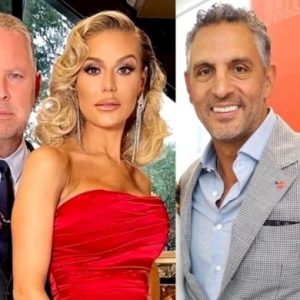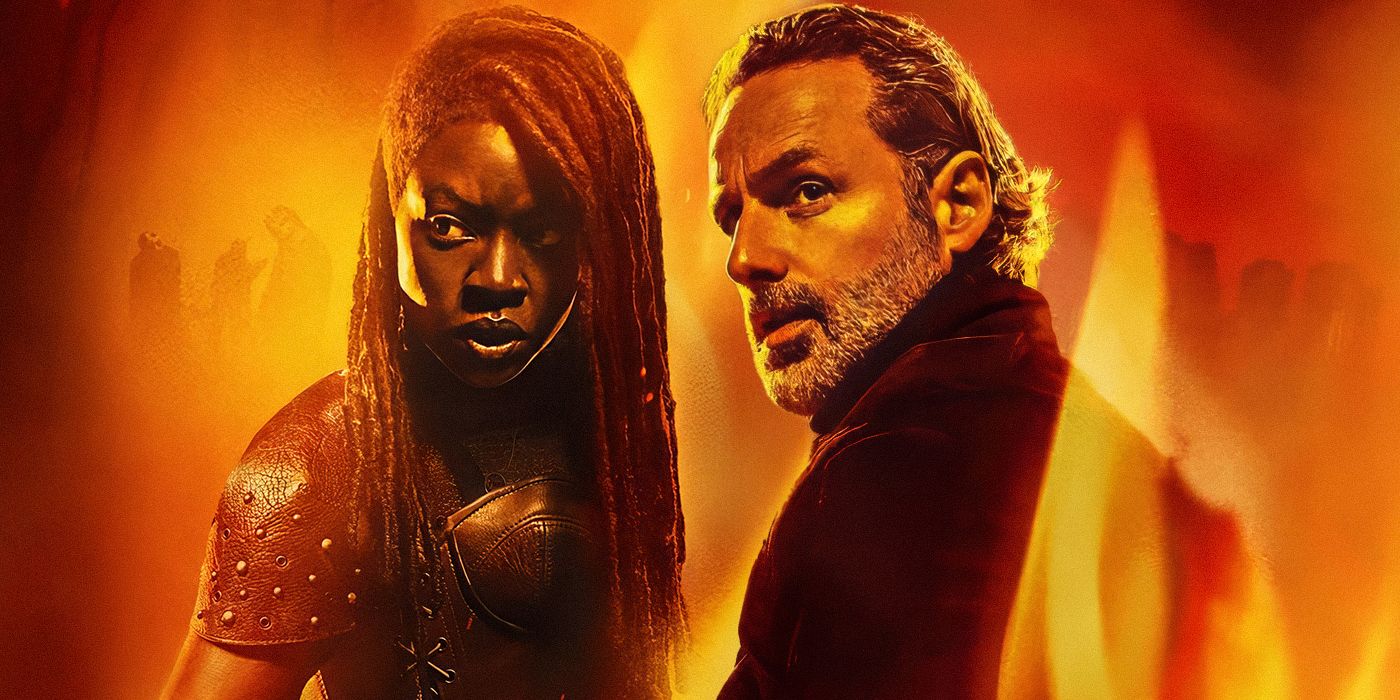
The Big Picture
- Over the six episodes of ‘The Walking Dead: The Ones Who Live,’ Rick and Michonne’s love story faces new challenges in a world filled with dangers.
- ‘The Walking Dead’ spin-off evolved from a movie trilogy into a TV series developed in close collaboration between co-stars Andrew Lincoln & Danai Gurira and showrunner Scott M. Gimple.
- Walker scenes offer innovative twists, pushing boundaries and maintaining viewer engagement.
From executive producer/showrunner Scott M. Gimple, the AMC series The Walking Dead: The Ones Who Live is the latest addition to The Walking Dead Universe, this time focused on the epic love story of Rick (Andrew Lincoln) and Michonne (Danai Gurira). Kept apart by distance and all the life-threatening dangers between them, the journey doesn’t end simply when they’ve reunited, and it’s not just about surviving the walkers. It’s best for them to fly under the radar and not attract attention to themselves, either individually or together, because the unpredictability of human forces can become more of a threat than anything.
This particular spin-off originally started as a trilogy of movies that were to feature Rick Grimes, but then evolved into a six-episode TV series centered around the love story of Rick and Michonne as they find their way back to each other and figure out what comes next, all while surviving walkers and navigating whatever human villains they cross paths with. Credited with being co-creators and executive producers, Lincoln and Gurira not only play two of the franchise’s most popular characters, but they are also true collaborators with Gimple, working alongside him every step of the way.
During this interview with Collider, the co-stars talked about how this series ultimately became what it is now, collaborating on every aspect of the development and production, what it was like for Gurira to write and step in as showrunner on episode four of the season, the importance of always coming up with new ways to use the walkers, Michonne’s facial expressions, the challenge of getting them to that point on the helicopter in episode three, and Rick’s mistake in thinking that Michonne would leave him.
The love story between Rick and Michonne. Changed by a world that is constantly changing, will they find themselves in a war against the living or will they discover that they too are The Walking Dead?
‘The Ones Who Live’ Co-Stars Andrew Lincoln & Danai Gurira Collaborated on Every Aspect of the Spin-Off
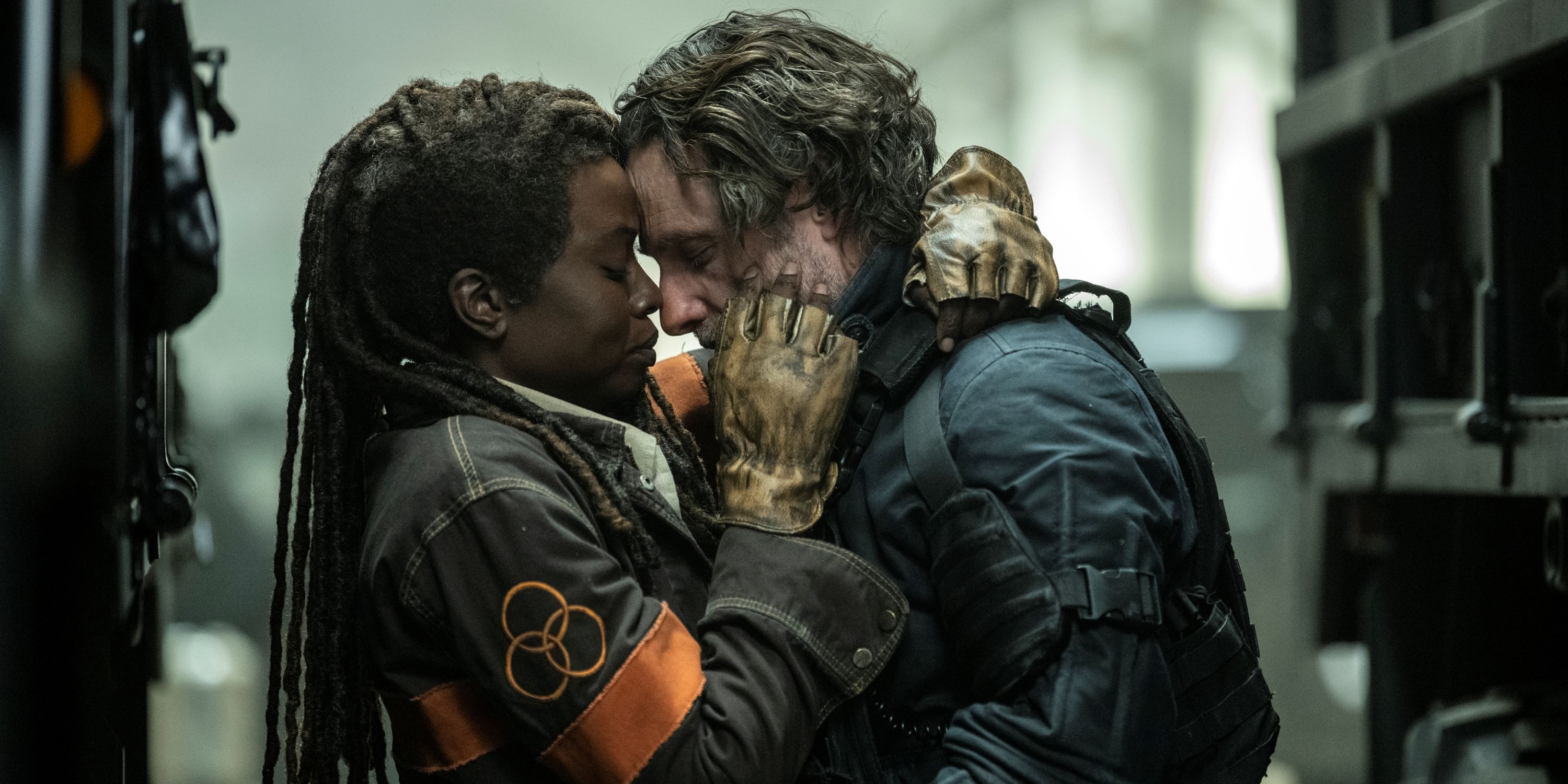
Collider: This has obviously been evolving for a while, and it’s really cool that you guys were involved as co-creators. What was it like to be so involved and to know exactly what story you would be telling and what you would be doing, every step of the way?
ANDREW LINCOLN: We definitely sketched out the structure, and then there we massaged certain bits as we got closer and closer, as it always happens with scripts. Scripts get delivered by the writers’ room, and then you go, “Okay, that works. Maybe let’s move it that way.” And also, with problem-solving in situ, on a schedule that’s tough and challenging, there are compromises. And then, again, there are compromises in post-production. The vision that we had starts in one place, but I’m not sure if there’s ever a vision that’s linear. It’s a movable feast because of circumstance and personalities and performances. Everything adds to it.
DANAI GURIRA: To answer your question from another angle, there was no step of the way that we were suddenly just actors getting our lines. There was never that moment. We all worked very collaboratively. Andy and [Scott] Gimple had been working on this idea before I got involved. It was an idea before it became what it became, but they had a lot of foundation already around CRM. And then, when I came in, it was like, “Okay, how do we arc this new rendition because now we were going into a whole new way of telling the story as this six-episode thing that was just going to be about our love?” I remember a very late in the process episode where we sat with the writer of that episode, which was just after the episode I had written, so we had come off that very intense shoot, had a little break, and then we had two more episodes to shoot. So, we sat down with that writer and there’s stuff in that episode that we all wrote. And then, Gimple wrote episode six, but we were very involved in, “How does this story conclude in the sixth episode? How do we make sure that the arc is what we want?” We were involved from every angle. There’s not one department or angle, from casting to hiring DPs and all heads of departments, that we weren’t involved. We basically were the ones doing all of that. There were times when Gimple got really bogged down in certain production aspects, so we would handle aspects when he just couldn’t be on that call, or he couldn’t do that thing. We really functioned as a band.
LINCOLN: [Danai] basically showran episode four.
GURIRA: [Gimple] told everyone, “Do not talk to me about episode four. Talk to her.”
LINCOLN: It was a very selfless thing to do. It’s an amazing thing to do, to give that.
GURIRA: It did help him, though.
LINCOLN: He had a big workload. Yeah, that’s true.
GURIRA: So, yeah, we were involved in every department, which is really what is gratifying for us.
Andrew Lincoln and Danai Gurira return in the latest spinoff from the franchise.
Danai, what was it like to step in, in that way? You’ve gone from being a player on the flagship show to then writing and showrunning an episode of a spin-off focused on your character. I can’t imagine you thought that would be where you thought it would all end up when you started on the series.
GURIRA: No, it wasn’t. It definitely wasn’t. But the show has always respected me as a writer. When I came onto the show, even before my first day, which is really when I knew I was entering a family, one of my plays was on at the Kirk Douglas Theater in Los Angeles, and Gale Anne Hurd, Denise Huth, Lauren Cohan, Glen Mazzara, and a few others, all came and watched my play. I was really moved by that because they didn’t need to do that. They hadn’t even worked with me for a day yet. It just made me feel [supported]. From that moment, I felt seen, and they knew my voice. And then, Gimple and I became very good buddies, like siblings, quite quickly. I don’t know why, but something connected us like family, very quickly. So, I would talk to him, when I would want to know about the character, like a writer talks. He’d always say, “You talk like a writer.” And I was like, “I can’t help myself. That’s how I think and talk.”
And so, by the time this was going on, it was established that they knew I’d left the show to focus more on creating my own stuff, and me and Gimple are creative partners on a couple other things. It wasn’t a leap, in terms of my relationship with him and our understanding of each other. That didn’t feel like a leap. What felt like a leap was having all those cylinders going at the same time, as a performer, a writer, and a showrunner. I was in tone meetings and handling all the questions and designing things, down to how a room would look with these amazing heads of department and what clothes were being worn in the episode. There was a lot of intricate stuff that I was very specific about, that I had to be a part of, and I had to act in the show. That felt very, very new. But I always felt valued by everybody. They understood that I create narrative.
Danai Gurira Believes It’s Important to Keep Shaking Things Up with the Walkers in ‘The Walking Dead’ Universe
One of the interesting things about this world is that each series had walkers, but there’s something different about them in each one. Was there anything about the walker scenes that each of you did in these episodes that most stood out for you? I was completely grossed out a few times.
GURIRA: As you should be. When you’re used to it, like us, it’s strange.
LINCOLN: When we did the opening sequence in episode one, we had the glowing ones, the flaming ones, that had sparks. The work KNB, Greg Nicotero’s company, did was amazing. The combination of the practical and the visual effects was amazing. It’s just improved and improved in the universe. In episode five, there are very specific walkers that, because of the environment and where they are, have a bit of comedic value. They try to put flavors in it. That’s Scott Gimple and Greg Nicotero.
GURIRA: He does think of very smart things. In episode two, with the weird gas man thing, it was like, “What?!”
LINCOLN: I loved that. I thought it was such a funny gag. The exploding head that knocks you out, I love that weird, heightened humor. They’re always trying to push the boundaries of what hasn’t been done. It happens in the writers’ room as well, with all these guys who are showrunners in their own franchise in the world. They’re brilliant. Their brains are so smart. They’ve got an encyclopedic reference point, and they go, “Okay, what about this?,” but it’s always about pushing the characters. The whole thing with the walkers is about energy. It’s the new energy source that they’re using. They kill them, dry them out, and then burn them, and that’s how they’re fueling the electricity.
GURIRA: That is what the world has to do. That’s the premise. You have to find new ways for people to figure out how to survive and new ways that things can go wrong with the walkers, even when a walker is already a walker. That’s how the ball is kept in the air. You constantly have to keep people going, “Okay, I’ve never seen that before and that grossed me out more than anything I’ve ever seen.” That’s how we have to keep the ball in the air. When that happens, we’re winning.
Danai, Michonne is a character that feels like you can’t make her do anything. She’s just not that kind of person. So, every time she gets mad, the looks you give without any dialogue whatsoever are just so brilliant. Do you do different variations of her reactions, or do you just always know how she would respond?
GURIRA: It’s hard because [Andy] is such a nice guy. I have no idea what’s going on with my face. Sometimes I watch it and think, “Man, if I knew what my face was doing then.” You’re living in the character’s mind, and she’s driving the thing, so that’s what you’re trying to do, but I don’t know what my face is doing in the moment. I have no clue. I’m just in the moment.
Why Does Rick Grimes Think He Knows Best When It Comes to Michonne?
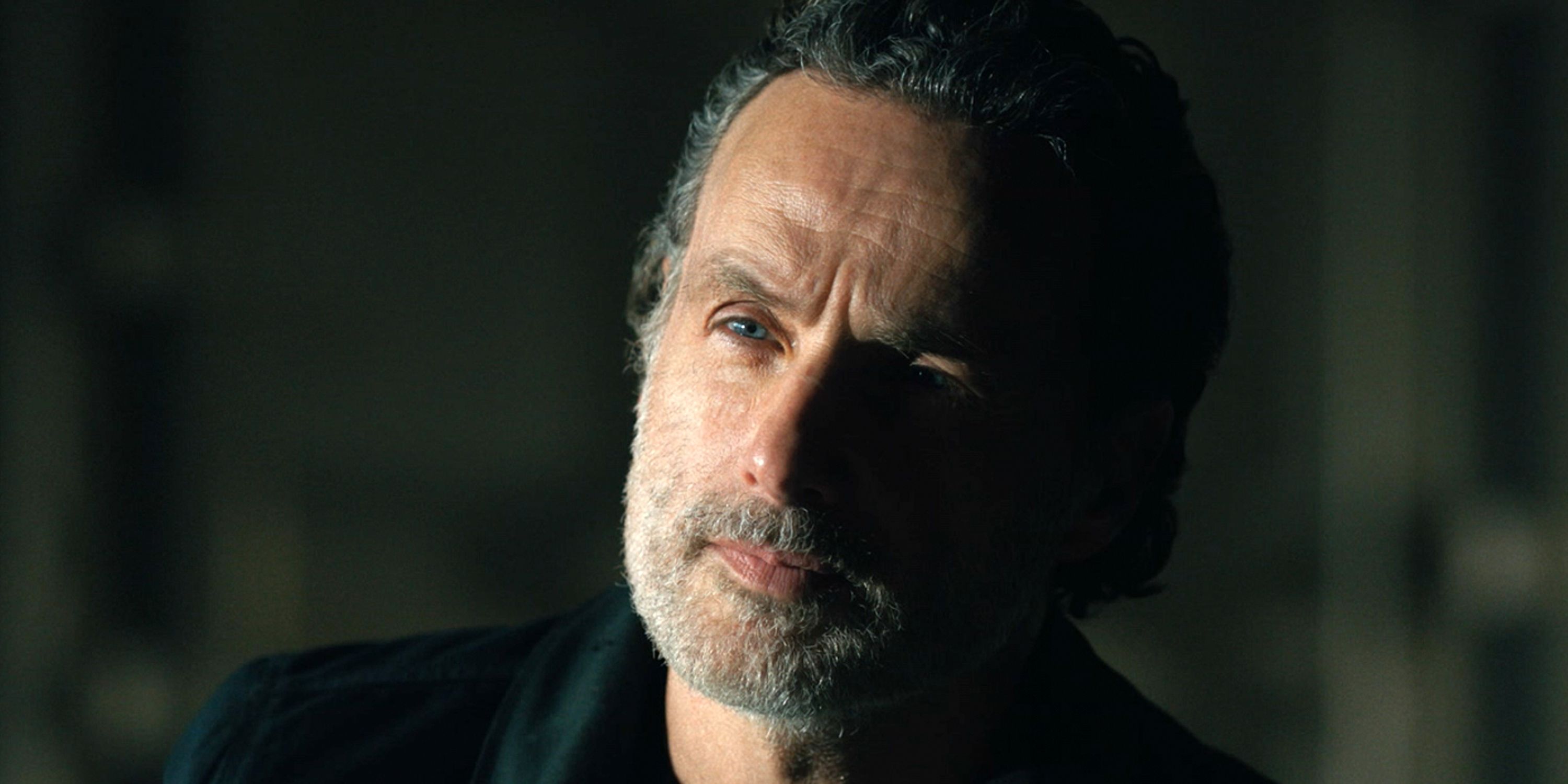
Andrew, do you think Rick immediately realizes that leaving Michonne a note was just the wrong call?
LINCOLN: I think it’s about the fact that he’s lived there, and he knows how serious this is. And because of Michonne being Michonne, she’s in a different space. She doesn’t understand the central dilemma. She’s like, “Do you think we can get the fuck out of here?” And he’s like, “We can’t.” He’s defeated, at that point. That’s very much described in episode four, with that feeling of, “Why would you think that I would leave without you?” That’s at the heart of that episode. It’s about why he did that and why he couldn’t leave.
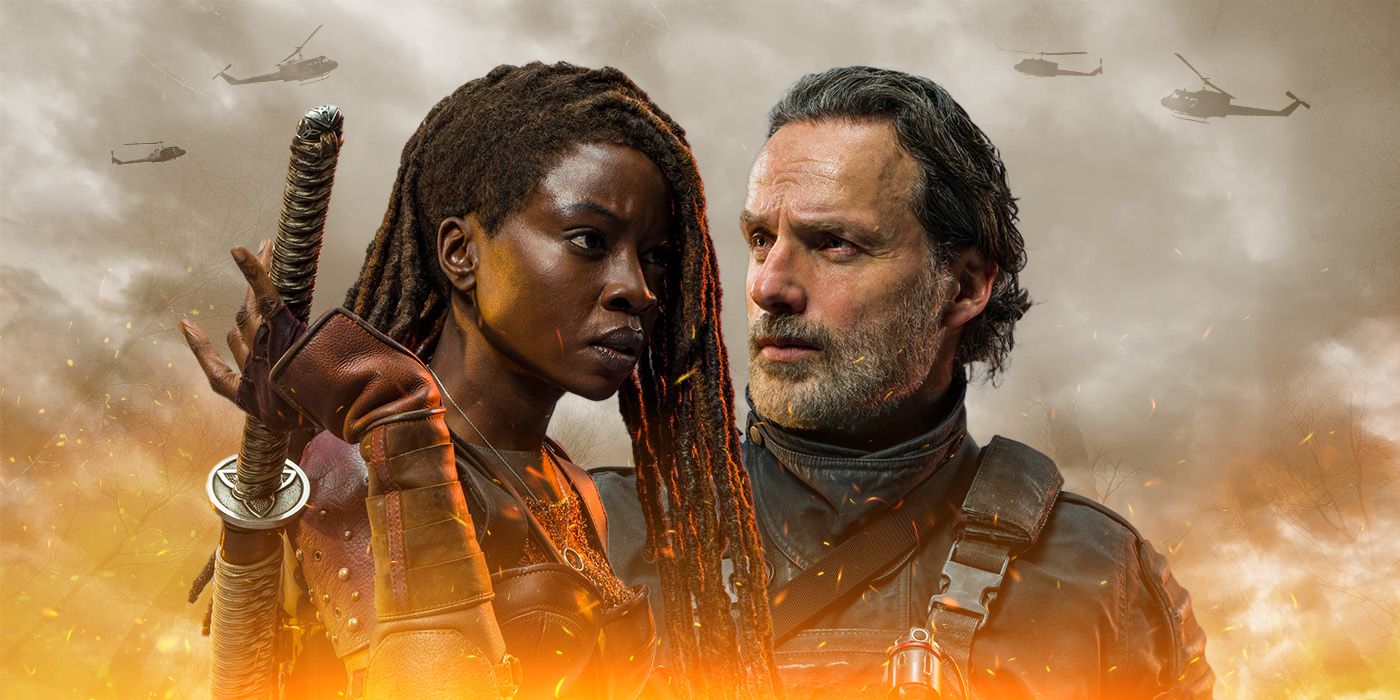
He had to know she wouldn’t just accept that.
LINCOLN: Yeah, I know. It’s a big leap, isn’t it?
GURIRA: And we tussled with that. He’s desperate and doesn’t know what to do.
LINCOLN: I think it’s a real dilemma. She hasn’t had the seven years of him trying to get home. She doesn’t know any of that backstory.
GURIRA: It’s very unexpected, what Rick is trying to pull on her. She’s like, “Excuse me?!”
LINCOLN: “I’ve come all this way. This is not the way it’s supposed to go.” That’s why we get pulled out of a helicopter. It’s like, “Fuck you, we’re going,” which I love. That’s one of my favorite endings.
GURIRA: Yeah, I love that ending. Gimple wrote that and it was just so smart.
LINCOLN: It’s those stepping stones of, “Okay, what if in episode three, she pulls him out of a helicopter? How do we get to that point?”
GURIRA: Yeah, and it was quite a journey getting episode three to that point.





